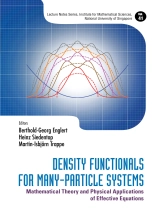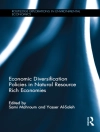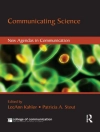Density Functional Theory (DFT) first established it’s theoretical footing in the 1960s from the framework of Hohenberg-Kohn theorems. DFT has since seen much development in evaluation techniques as well as application in solving problems in Physics, Mathematics and Chemistry.
This review volume, part of the IMS Lecture Notes Series, is a collection of contributions from the September 2019 Workshop on the topic, held in the Institute for Mathematical Sciences, National University of Singapore.
With contributions from prominent Mathematicians, Physicists, and Chemists, the volume is a blend of comprehensive review articles on the Mathematical and the Physicochemical aspects of DFT and shorter contributions on particular themes, including numerical implementations.
The book will be a useful reference for advanced undergraduate and postgraduate students as well as researchers.
Contents:
- Foreword
- Preface
- Participants
- Mathematical Elements of Density Functional Theory (Heinz Siedentop)
- A Statistical Theory of Heavy Atoms: Energy and Excess Charge (Hongshuo Chen, Rupert L Frank, and Heinz Siedentop)
- Relativistic Strong Scott Conjecture: A Short Proof (Rupert L Frank, Konstantin Merz, and Heinz Siedentop)
- Direct Methods to Lieb–Thirring Kinetic Inequalities (Phan Thành Nam)
- Dynamics of Interacting Bosons: A Compact Review (Marcin Napiórkowski)
- Corrections to the Mean-Field Description for the Dynamics of Bose Gases (Peter Pickl)
- Semiclassics: The Hidden Theory Behind the Success of DFT (Pavel Okun and Kieron Burke)
- Density-Potential Functional Theory for Fermions in One Dimension (Martin-Isbjörn Trappe, Jun Hao Hue, and Berthold-George Englert)
- Remarks on the Density Functional Theory of Relativistic Many-Particle Systems (Reiner M Dreizler)
- Energy Functionals of Single-Particle Densities: A Unifled View (Berthold-Georg Englert, Jun Hao Hue, Zi Chao Huang, Mikołaj M Paraniak, and Martin-Isbjörn Trappe)
- Spin-Density Functional Theory Through Spin-Free Wave Functions (Mel Levy, Federico Zahariev, and Mark S Gordon)
- Advances in Rectangular Collocation for Solution of the Schrödinger Equation: From Obviating Integrals to Machine Learning (Sergei Manzhos and Tucker Carrington)
- FLEIM: A Stable, Accurate and Robust Extrapolation Method at Infinity for Computing the Ground State of Electronic Hamiltonian (Étienne Polack, Yvon Maday, and Andreas Savin)
Readership: Physicists, Mathematicians, and Chemists interested in learning about/who are using Density Functional Theory.












